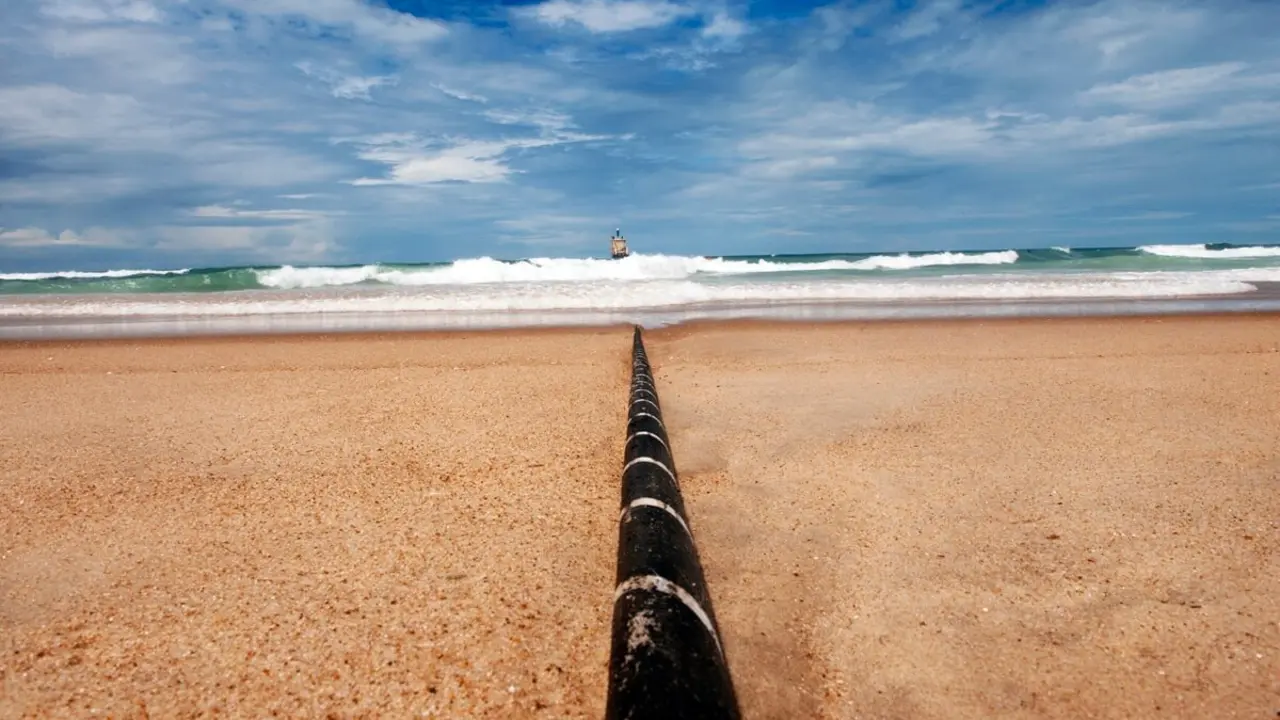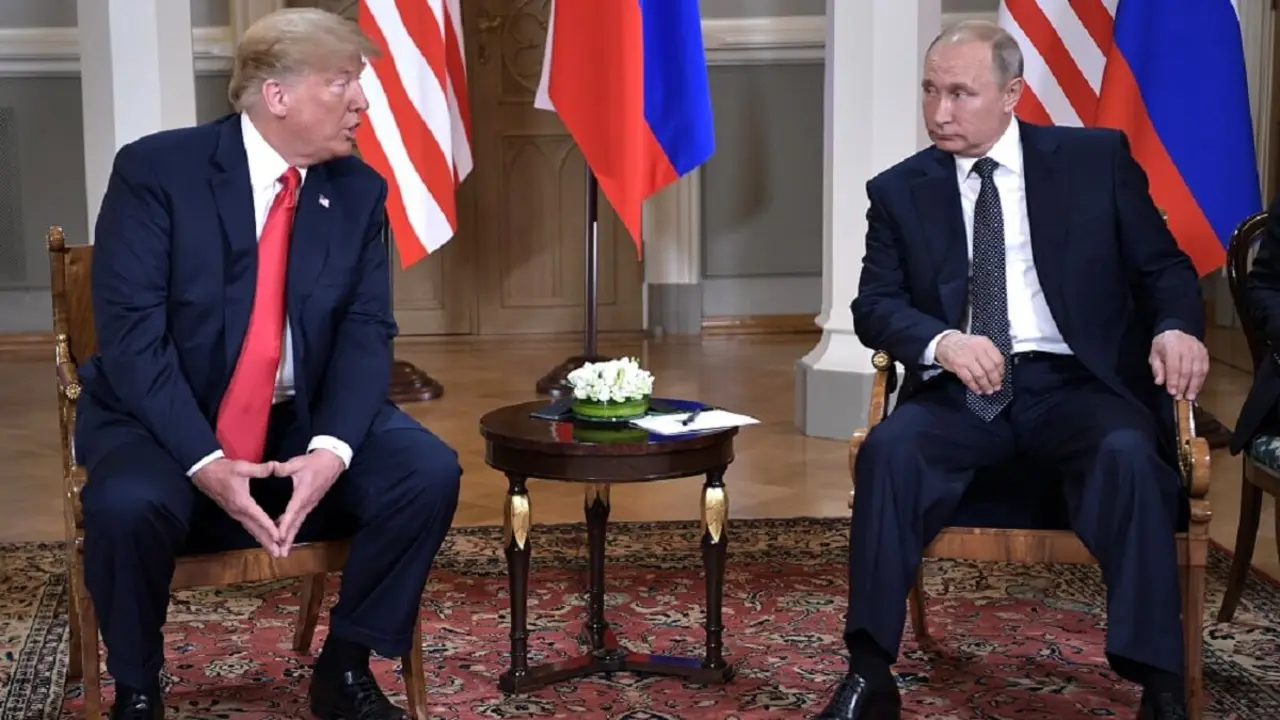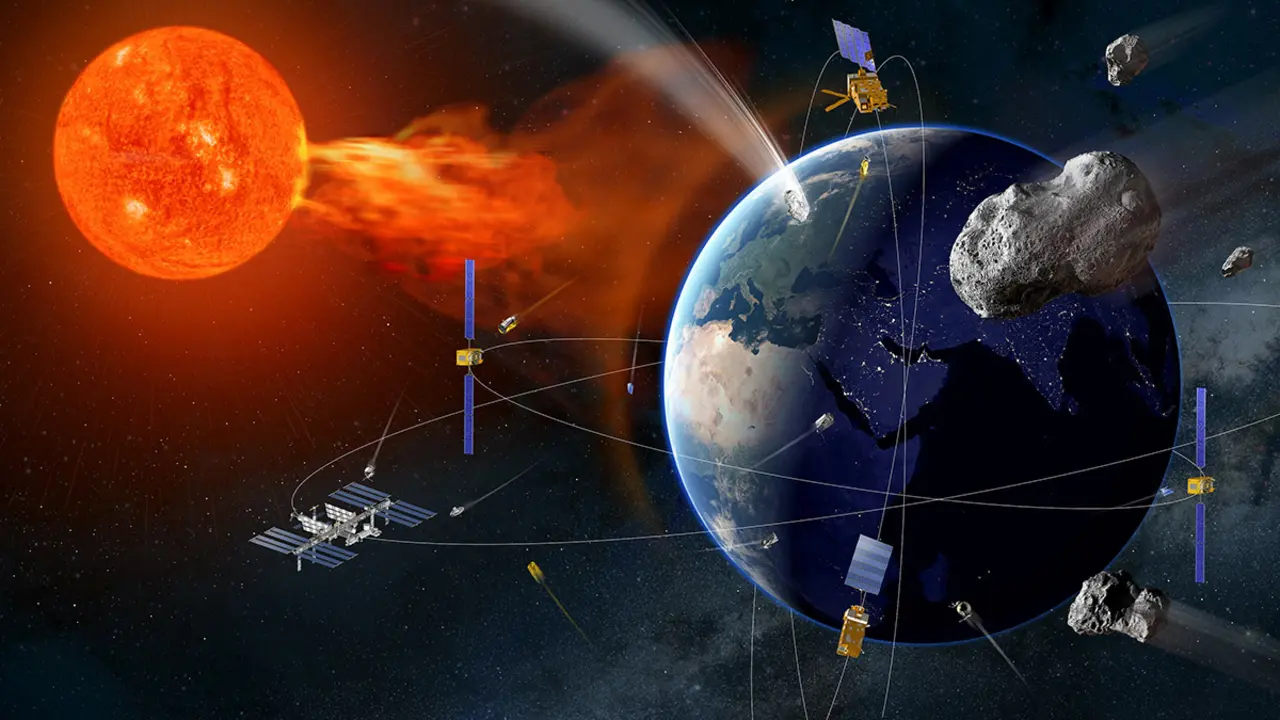French President Emmanuel Macron returns from Angola with a satellite under his arm

The President of the Republic of France, Emmanuel Macron, is already back in his official residence at the Elysée Palace in Paris, following his five-day tour of Gabon, Angola, Congo and the Democratic Republic of Congo (formerly Zaire), countries he has visited to build a "new, balanced, reciprocal and responsible" relationship, in his own words.
Macron's tour of the four central African countries from 1 to 5 March was aimed at reorienting and improving the deteriorated Franco-African relations which, he confessed, "until now have been centred on the military and security sphere".
Macron wants to "Africanise" his main permanent military bases in Côte d'Ivoire, Gabon and Senegal and reconvert them into "academies" or "mixed bases". He also aims to carry out a "significant reduction" of his troops on the continent, which official sources put at around 3,000 soldiers deployed in the three countries mentioned above, and as many more in the Sahel zone.

Accompanied by a large business delegation, Macron's stay in two former French colonies (Gabon and Congo), one Portuguese (Angola) and one Belgian (Democratic Republic of Congo) has also served to strengthen ties at all levels, expand the investments of French companies and, as far as possible, counteract the growing influence of China and Russia in the four countries.
On the economic front, his visit to Angola on 3 March and his meeting with President Joao Lourenço - who has just turned 69 and has been in power since September 2017 - was the backdrop for Airbus to sign a contract with the Luanda government to develop what will be Angola's first Earth observation satellite.

Macron describes Angola and its oil as a "strategic partner", which has led to a state-state agreement under which Airbus Space Systems France will manufacture a state-of-the-art electro-optical technology satellite at its Toulouse factory. Named Angeo-1, when in orbit and operational at an undisclosed date, it will be the most advanced of its kind in the region.
Angeo-1 is based on the S250 platform, which is part of a new family of observation spacecraft developed by Airbus Space Systems, whose head since June 2019 has been Frenchman Jean-Marc Nasr. The new range of spacecraft was unveiled in February 2020 and is designed to offer turnkey small satellites to customers in third countries.
Weighing around 300 kilos, Angeo-1 will be used by the Angolan authorities for governmental applications, both civilian and security and defence-related, as it offers a resolution of 50 centimetres. With the level of detail its imagery will provide, it will be possible to monitor borders, estimate agricultural production and deforestation, monitor urban planning, precious mineral resource management and oil spills with utilities.

The contract signed between Angola's Minister of Telecommunications, Information Technologies and Social Communication, Mario Augusto da Silva Oliveira, and Airbus Space Systems CEO, Jean Marc Nasr, includes the training of at least 15 Angolan technicians to operate Angeo-1 and the training of a core of engineers specialised in space technologies.
President Joao Lourenço and his government have a vision for the future and clear space ambitions. Proof of this is the recent launch of the AngoSat-2 communications satellite from the Baikonur Cosmodrome on 12 October 2022. Manufactured by the Russian state-owned company Reshetnev, the satellite's control centre is located in Funda, some 45 kilometres from the capital, Luanda.

AngoSat-2 is based on the Russian Ekspress-1000N platform, weighs about 2 tonnes and has 31 transponders in the C, Ku and Ka bands. It replaces the failed 1.65-tonne AngoSat-1, built by Russia's RKK Energia but equipped by Airbus Space Systems with 22 transponders in C- and Ku-band. Launched on 26 December 2017 also from Baikonur but on a Ukrainian Zenit-3F rocket, it suffered a lethal anomaly that prevented it from entering service.
Before leaving for his African tour, Macron said in a speech on 27 February that France "has a destiny linked to the African continent and, if we know how to seize it, we have the opportunity to anchor ourselves in the continent". He added that Africa "will gradually become one of the youngest and most dynamic economic markets in the world and one of the main centres of global growth in the coming decades".
The Paris government's new strategy emphasises that African countries should formulate "very clearly their military and security needs", on which France will then "increase its offer of training, support and equipment at the highest level". Macron stressed that "we come (to Africa) to defend our interests and we will do so in a way that respects those of the African countries where we are deployed".

President Emmanuel Macron's tour of Gabon, Angola, Congo and the Democratic Republic of Congo coincided with a two-day visit to Mali by the Spanish Minister of Defence, Margarita Robles. Her purpose was to see in situ the progress of the Spanish contingent attached to the European Union Training Force (EUTM-Mali), through which the Spanish army provides the Malian army with military training and advice on command and control, logistics and human resources management.
Accompanied by the director of her technical office, Air Force Major General Pablo Guillén, the Chief of Defence Staff, Admiral Teodoro López Calderón, and the Secretary of State and Director of the National Intelligence Centre, Esperanza Casteleiro, Robles met with Army General Santiago Fernández Ortiz-Repiso and his team at the EUTM-Mali headquarters in Bamako. The minister was briefed in detail on the situation of the Spanish contingent, which contributes 334 military personnel to the EU mission, representing 75 percent of the multinational personnel.
Minister Robles and the delegation, together with the Spanish ambassador, José Hornero, also held a meeting with the Malian Minister of Defence, Sadio Cámara, in which they shared their thoughts on the future of the EUTM-Mali mission, which is increasingly being called into question.









